In the year 2024, our country India has progressed very fast in terms of urbanization and this has transformed cities as well as towns. This is why with such urbanization, the function of municipal corporations or Nagar Nigams becomes even more important.
Another important function is the collection of nagar nigam house tax which is the major source of income for managing the infrastructure facilities of towns and cities.
This blog post gives you a complete information about what is nagar nigam house tax in India, how it is calculated, what changes have been made recently, and what process you should follow if you want to pay tax in the year 2024.
Our only motive behind presenting this blog post to you is that we can provide you with all the information about Nagar Nigam House Tax, which no one else is able to offer you.
Note: We would like to inform you that this entire blog of Nagar Nigam House Tax written by us has been written after doing completely accurate research. We have not written any kind of information in it ourselves. Everything has been taken through the search engines.
- What is the Nagar Nigam House Tax?
- What is the Historical Background of House Tax?
- What is the Importance of House Tax?
- Why is Nagar Nigam House Tax Levied?
- How is Nagar Nigam House Tax Calculated?
- What are the Factors that Affecting House Tax Rates?
- What are the Steps to Calculate Nagar Nigam House Tax?
- How to Pay Nagar Nigam House Tax?
- What are the Deadlines and Penalties?
- What are the Rebates and Exemptions?
- What are the Procedures for Filling Complaints and Disputes?
- What are the Recent Changes in House Tax Regulations in 2024?
- What are the Common Challenges and Solutions?
- What are the Case Studies: How Different Cities Handle House Taxes?
- What is the Future of House Tax in India?
- In Conclusion
- FAQs
- Q1. What happens if I don’t pay my house tax on time?
- Q2. Can house tax rates vary within different areas of the same city?
- Q3. Is it possible to get an exemption from house tax?
- Q4. How can I appeal against an incorrect house tax assessment?
- Q5. What should I do if my property is newly constructed?
- Q6. Can house tax be paid in installments?
- Q7. Are there any special house tax provisions for senior citizens?
- Q8. What documentation is needed to pay house tax?
- Q9. How often is house tax reassessed?
What is the Nagar Nigam House Tax?

Nagar Nigam House tax is a local tax levied on any property in the area governed by a municipal corporation. This tax is levied only on properties, and includes housing, commercial and industrial buildings and the income is used on public utility requirements, for example; sanitation, road repairs etc.
What is the Historical Background of House Tax?
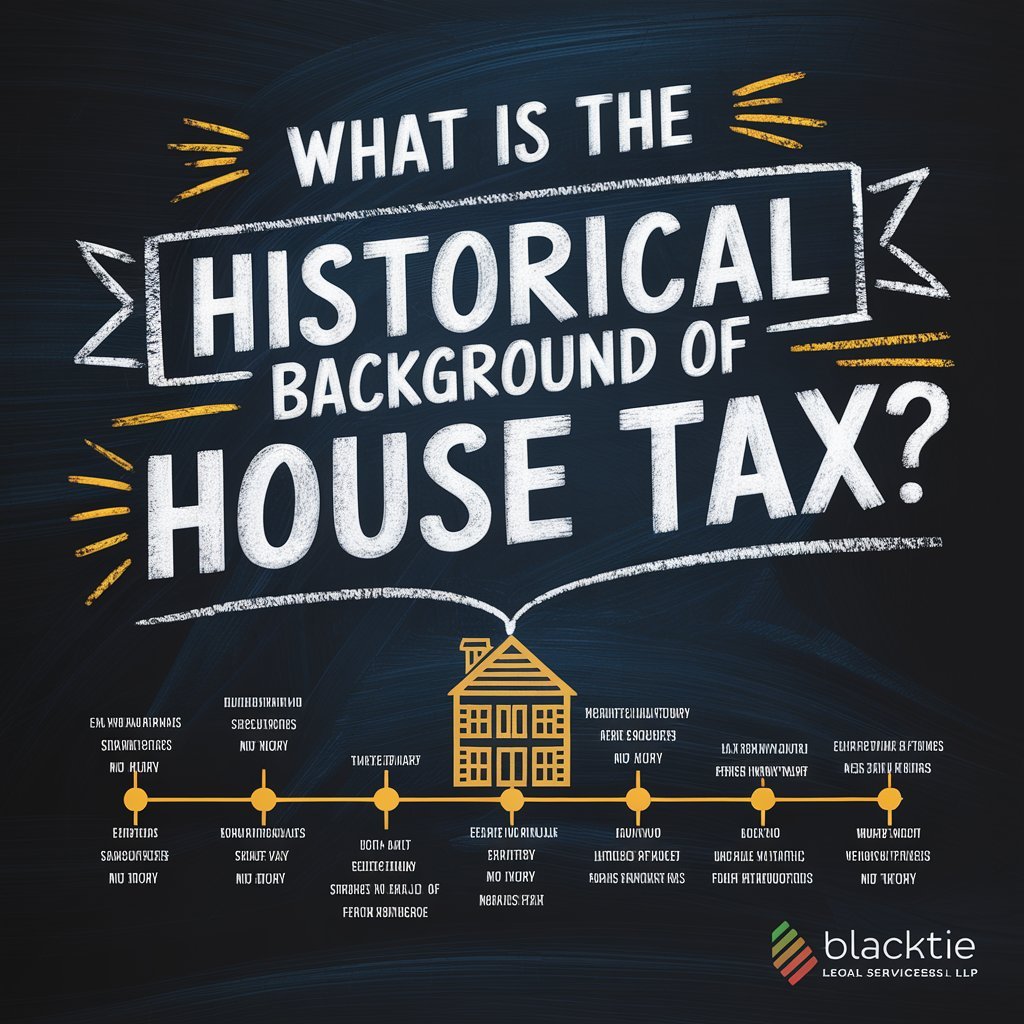
House tax is not a new tax in India; rather it originated during the British colonial period when local bodies were given the authority to collect taxes for the maintenance of towns and cities. However, this has changed over time wherein now the nagar nigam is the central authority for the collection of taxes in the urban area.
What is the Importance of House Tax?

As mentioned, house tax is significant in the day-to-day functioning of urban local bodies. The money collected is used to enhance other infrastructure, such as roads, bridges, and water systems, provide basic services, and, in general, develop the municipality.
If such revenue is not received, municipalities will not be in a position to construct and maintain roads, supply clean water, remove garbage and provide other public services.
Why is Nagar Nigam House Tax Levied?

Nagar Nigam house tax is mainly collected to find the fund that will be used in the operation of the municipal corporation which provides essential services to the public such as construction of roads and provision of sanitation, cleaning, water supply, street lighting and even waste disposal. House tax is an essential source of creating and supporting the infrastructure facilities of urban areas.
How is Nagar Nigam House Tax Calculated?
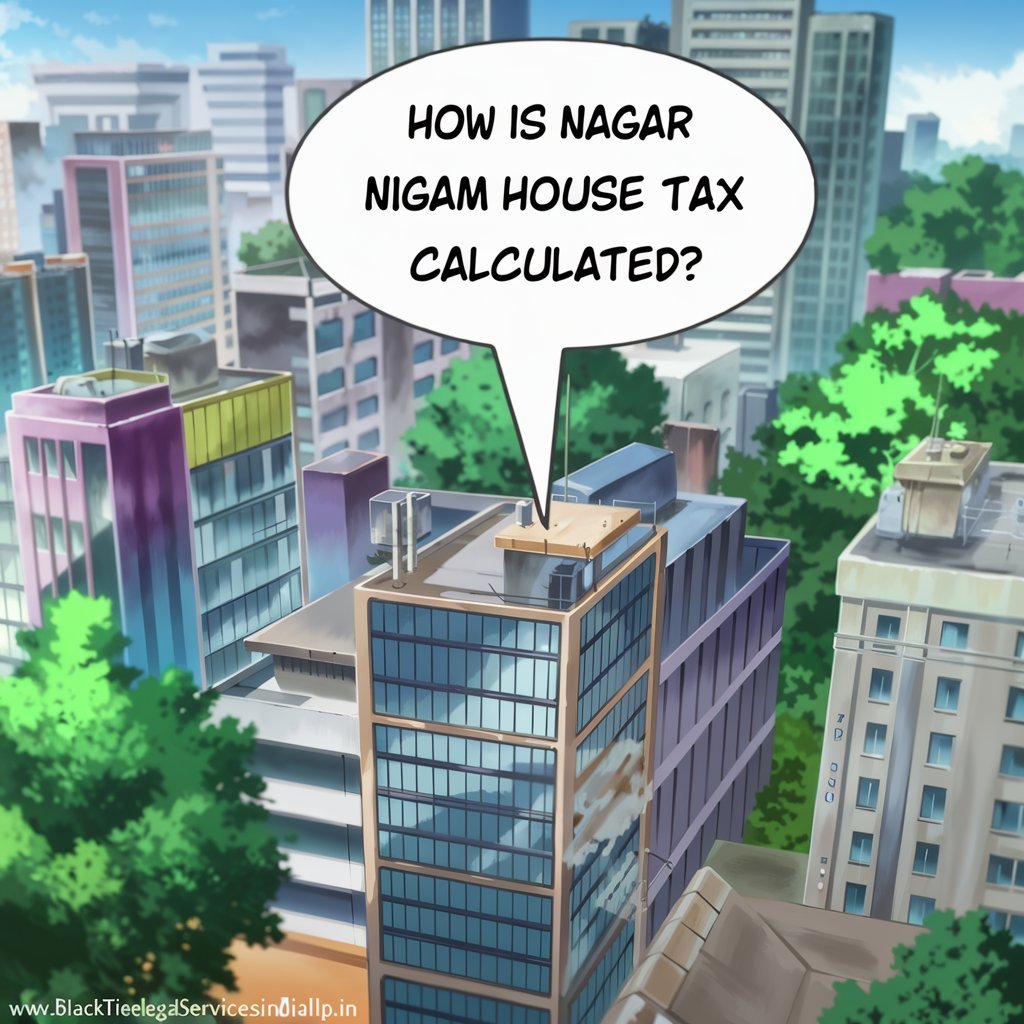
House tax calculation varies from one municipal area to another as different municipalities may use different methods in assessing the tax. However, the following are some common factors that determine this tax.
Annual Rental Value (ARV) Method
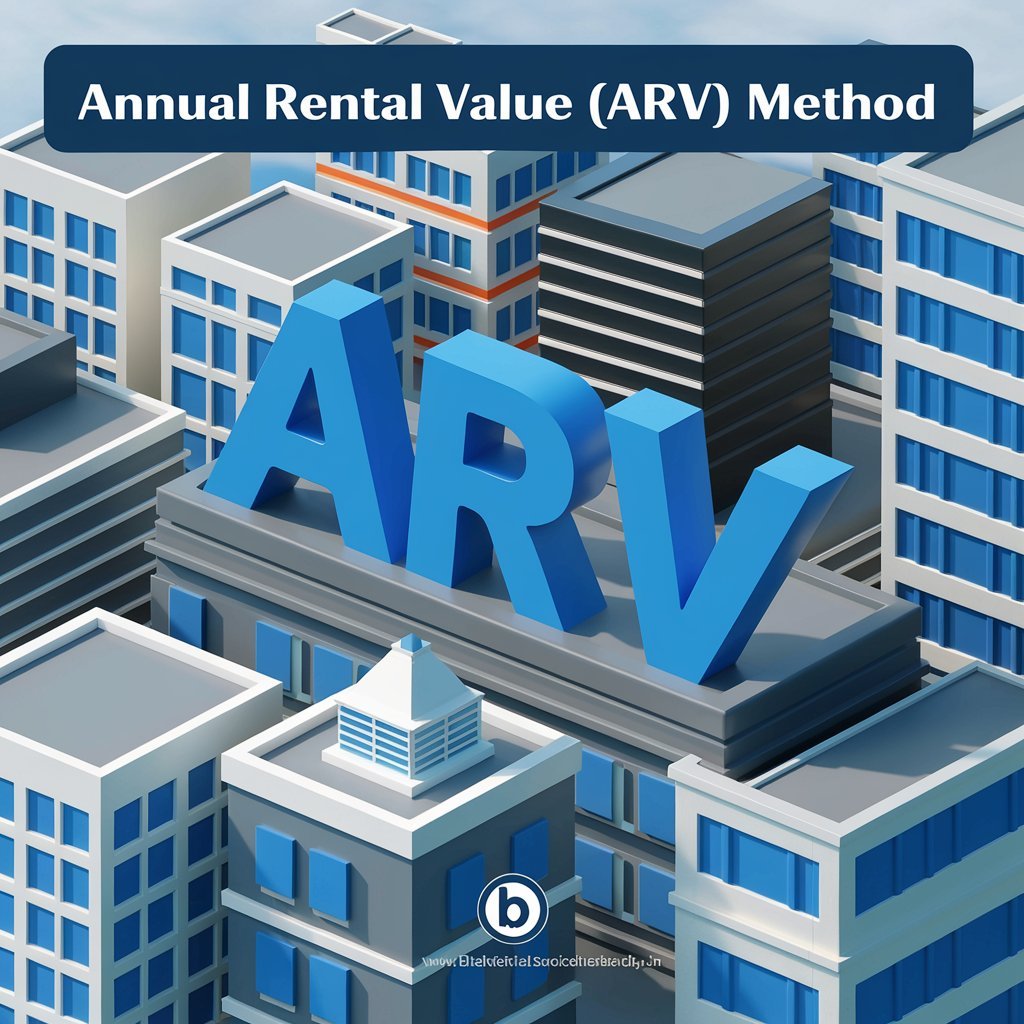
Generally, most cities these days use the Annual Rental Value (ARV) method to calculate home tax. In this system, tax is levied based on the rental income that the property will fetch if it is rented out.
While calculating ARV, certain parameters need to be taken into consideration such as the location, size and intended use of the property.
Capital Value System
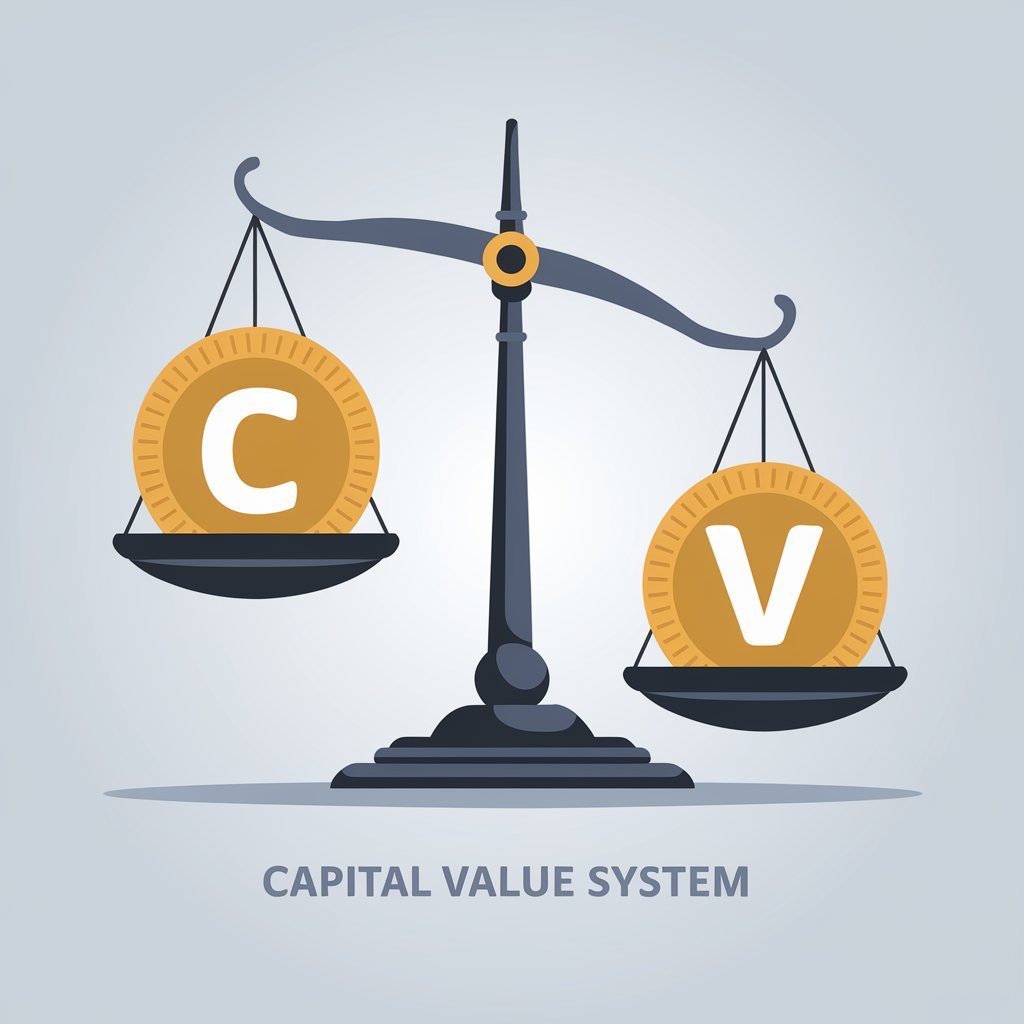
All other municipalities levy taxes under the Capital Value System (CVS), under which the amount of tax depends on the value of the property. This system takes into account the current market value of a particular property, where a certain percentage of this value is taken as the tax base.
Unit Area Value (UAV) System

The second is Unit Area Value (UAV) where the tax earned depends on the unit area value of a property. This system takes into account the location of the property, its use as well as the amenities available in the area in an attempt to assess the correct amount of tax.
Factors Influencing House Tax

- Property Location: It generally tends to be the case that properties located in more desirable areas are subject to higher tax rates due to their higher value.
- Property Size: Generally, all types of more significant properties are taxed more than smaller properties.
- Property Usage: There are also cases where residential properties are subject to lower tax rates than commercial or industrial properties.
- Amenities: Factors such as proximity to public amenities like parks, schools, and other transportation modes also contribute to the tax amount.
What are the Factors that Affecting House Tax Rates?
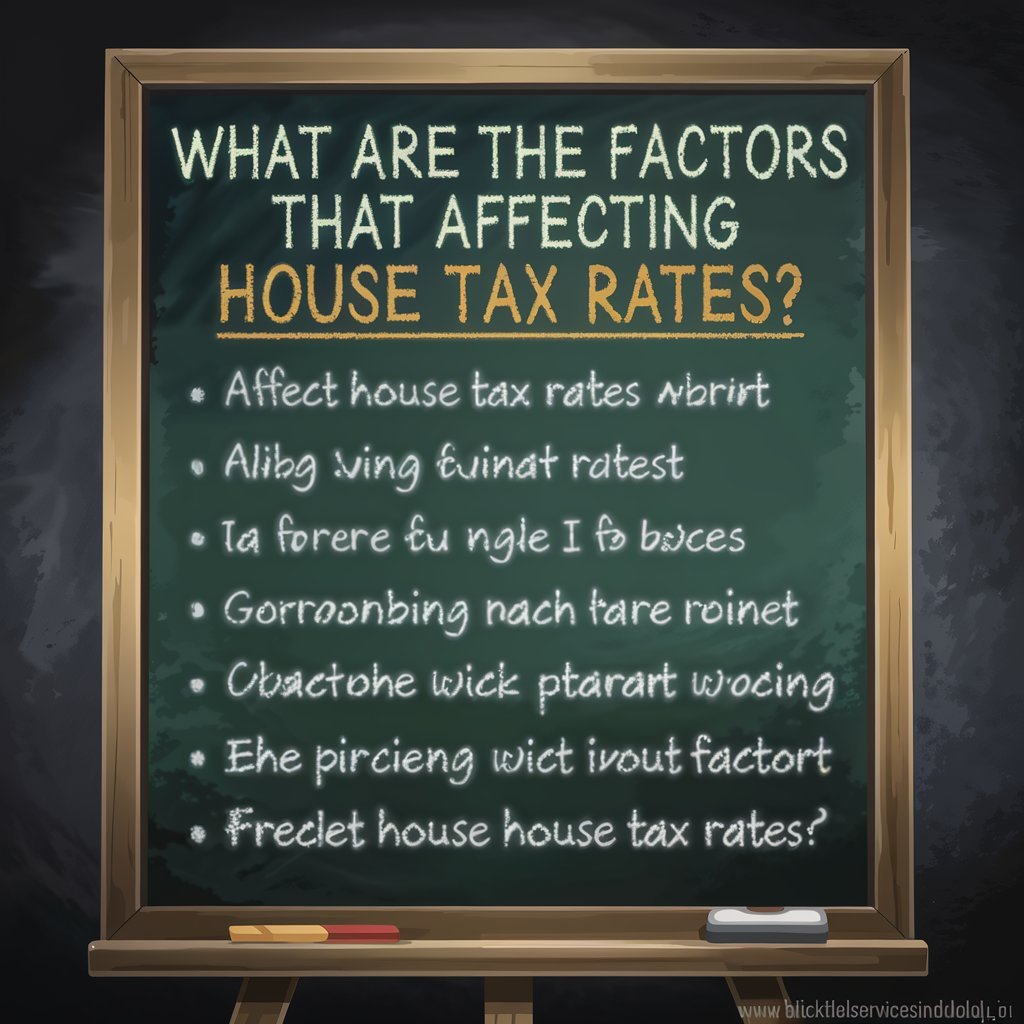
Several factors influence the determined easily by the Nagar Nigam house tax rates:
- Location and Zone: Real estate properties located in strategic areas or areas considered developed are taxed more.
- Type of Property: Irrespective of whether the property involved is residential, commercial, or industrial in nature.
- Property Age and Size: The rate of assessment for old structures may be different, while spacious properties are taxed more.
- Usage of Property: This is because the rates for owner-occupied premises are different from those for rented or commercial premises.
What are the Steps to Calculate Nagar Nigam House Tax?

Calculating your Nagar Nigam House Tax can be simplified with these steps:
- Identify the Property Category: Classify the type of property as residential, wherein the subject is classified under multi-housing; or as commercial, which includes office; or as a combination of both.
- Check the Property Zone: There are different zones and each zone attracts a certain percentage of tax. Ensure this from the municipal authority of the particular zone of your property.
- Determine the Applicable Rate: Know the tax rate preferably per sq ft or annually which is set by the municipal corporation.
- Calculate the Final Amount: There may also be specific exclusions or norms depending on the age of the traveller or the disability status of the traveller.
- Calculate the Final Amount: Multiply it by the property size or estimated rental value to get the tax amount after applying the relevant rate.
How to Pay Nagar Nigam House Tax?

Paying Nagar Nigam house tax in India 2024 has become much more convenient, as multiple payment methods have been made available. Here is a step-by-step guide to help property owners understand the process:
Online Payment

- Step 1: Visit the official website of Nagar Nigam of your city to view Municipal Corporation details efficiently.
- Step 2: Sign up using the property details or sign in with the available account.
- Step 3: Go to the House Tax Payment field and enter the Property ID number.
- Step 4: Check the figure displayed on the screen to ensure it matches the correct tax amount.
- Step 5: Choose the payment option (Credit Card/Debit Card/Net Banking/UPI) and proceed with the payment.
- Step 6: Save the payment receipt for future purposes.
Offline Payment

- Step 1: To get this done you have to visit the municipal corporation office or any bank branch that is authorized to do so.
- Step 2: Enter your property details and the tax you have to pay.
- Step 3: The tax can be paid via cash, cheque, or demand draft.
- Step 4: Get the payment receipt from the bank official or authorities.
Payment Through Mobile Apps

In 2024, many cities have launched mobile applications for payment of house tax. These apps have one click operations where property owners can pay their taxes, check payment details and payment due dates.
What are the Deadlines and Penalties?

Every municipality has its own schedule for tax payments, which is usually due on an annual basis. Like any other debt, if the person does not meet the due date, there may be some consequences, for example, a penalty or interest charge on the outstanding amount.
Nevertheless, it is possible to note that there are certain additional costs that must be mentioned; it is important to take care of the deadlines for them.
What are the Rebates and Exemptions?
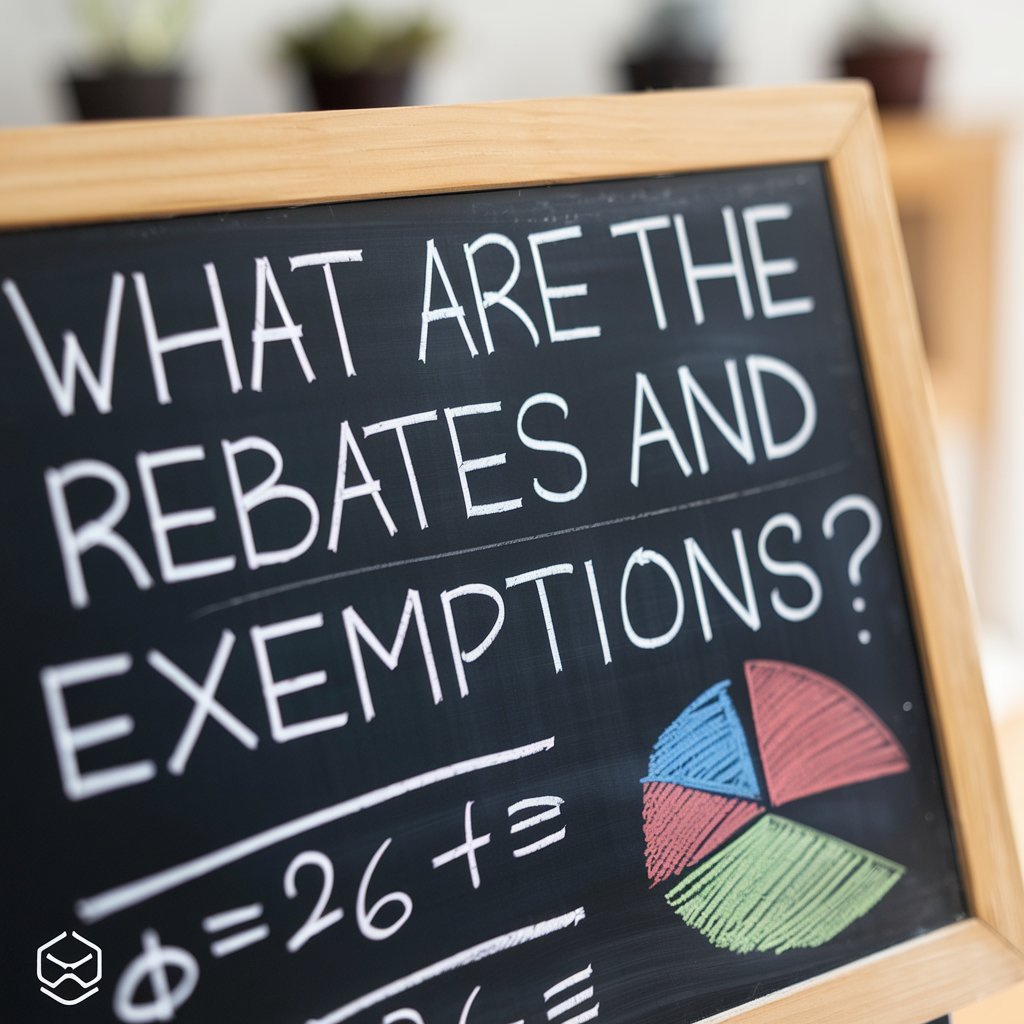
Specific categories of individuals and properties are eligible for rebates or exemptions:
- Senior Citizens: There may be some exemption in house tax.
- Disabled Persons: This may reduce the tax prices.
- Environment-Friendly Properties: Other beneficiaries may include houses with solar roof tiling, rainwater harvesting systems, or any other structure that makes the buildings eco-friendly.
What are the Procedures for Filling Complaints and Disputes?

If you believe there’s an error in your house tax assessment or need to raise a complaint, you can follow these steps:
- Visit the Local Municipal Office: Contact the tax assessing officer.
- File a Written Complaint: The next step is to formally write an appeal for the possible reasons for such disparity.
- Follow-up: You can visit the Municipal Corporation Grievance Redressal System to know the status of your complaint.
What are the Recent Changes in House Tax Regulations in 2024?

The year 2024 has been a year of changes in the rules and regulation of various nagar nigam house tax in india. It was noted that these changes will help in increasing the efficiency and transparency of tax officials as well as solving the problems of urbanization.
Digitization of Tax Processes

The most important change expected in the year 2024 is the computerization of house tax processes. Many municipal corporations have planned an online gateway that enables property owners to locate, track and pay house tax.
This shift towards adopting technology-based systems is expected to reduce human intervention, increase openness in work and make the entire process easier.
Introduction to GIS- Assessment

Some municipalities have incorporated GIS analysis in the calculation of taxes so as to reduce errors. Through GIS, it is possible to plot various properties with an understanding of their location, their size or dimensions as well as other properties. This plays the role of pointing out disparities and also ensures that proper taxes are levied on all properties.
Rebates and Incentives

With an aim to motivate people to pay their house tax on time, the following municipal corporations have offered discounts and incentives in the year 2024.
By encouraging early payment and online payment, property owners are given incentives such as discounts or cashbacks to ensure that they pay their taxes.
Stricter Penalties for Non-Compliance
The year 2024 saw a change in the trend towards more stringent compliance, due to the fact that the law prescribes harsh penalties for non-compliance. Non-compliance with tax laws such as paying taxes late, neglecting to declare the correct property value, or not paying taxes leads to penalties, interest, or legal consequences.
What are the Common Challenges and Solutions?

Despite changes in technology and the creation of new rules and regulations, house tax has become a thorny issue for property owners. Below are some common problems and their solutions:
Discrepancies in Property Details

- Problem: This leads to over-assessment of tax as the details of properties recorded in the tax roll are not accurate.
- Solution: Property owners should frequently check the details of their properties registered on the Nagar Nigam house tax portal and in case of any omissions or any changes, they should report the same immediately.
Lack of Awareness

- Problem: Some property owners may not be aware of the tax law, when payment is due, or how to make the payment.
- Solution: Self-promotion should be increased more significantly by organizing public campaigns through social networks, community campaigns, etc.
Technical Glitches

- Problem: Delays in tax payments may also be experienced because some online portals or mobile applications may present technical difficulties.
- Solution: Municipalities should guarantee the maintenance of their online channels and provide diversions, especially in relation to payment processes.
High Penalties for Late Payments

- Problem: Penalties for late payment can cost property owners heavily.
- Solution: Property owners should also set alerts for payment of taxes, learn how to avail tax credits that are encouraged by the government for paying taxes on time.
What are the Case Studies: How Different Cities Handle House Taxes?
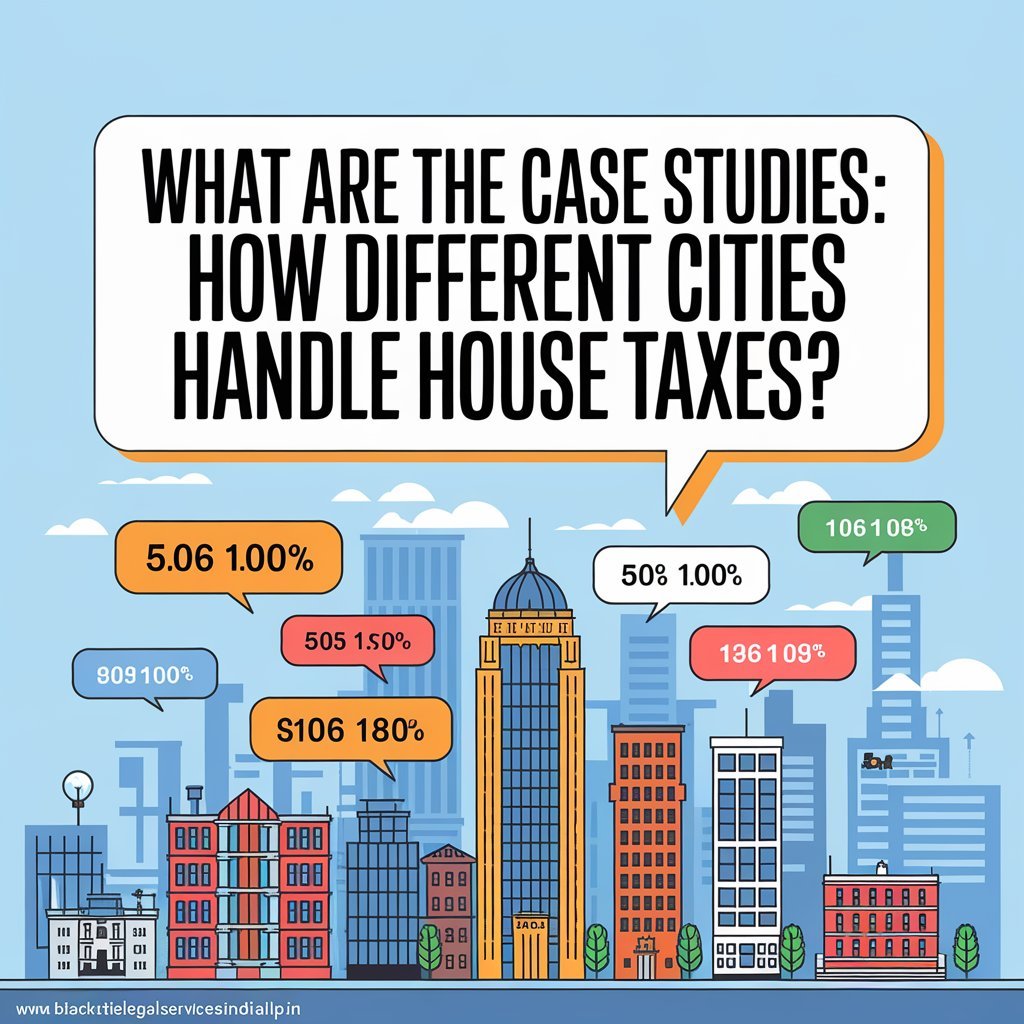
To provide a brief understanding of house tax management across India, let us look at a few cases from different cities.
Mumbai: A Model of Digitization

The Mumbai Municipal Corporation has been a pioneer in the process of digitizing house tax processes.
Services like online payment portals, mobile applications and GIS based assessment have increased the efficiency of the tax collection system.
Mumbai has witnessed a little more transparency, whereby property owners can easily view their tax information and make payments without any hassle.
Delhi: Addressing the Challenges of Urbanization

There have been some issues and concerns in the past with the Municipal Corporation of Delhi as it is a very large and densely populated urban area.
In response, the city has initiated actions such as UAV-based tax assessment to facilitate the provision of fairness. In addition, Delhi offers a large incentive for the advance payment of taxes and this has boosted compliance levels.
Bengaluru: Encouraging Green Initiatives

The municipal corporation of Bengaluru offers attractive policies for property owners who adopt eco-friendly structural designs. Buildings that collect rainwater install solar panels, or have energy-efficient structures are eligible for excise tax credits.
Apart from meeting the needs of the public, this initiative also leads to sustainable development of the city and reducing its carbon footprint.
What is the Future of House Tax in India?

It is very evident that the contribution of house tax to the overall municipal revenue will increase in the future as India moves towards urbanization.
The evolution of house tax in India is likely to involve more technology integration like artificial intelligence or blockchain systems in the coming years.
AI-Powered Assessments

One purpose of artificial intelligence is property valuation, where a lot of data can be analysed to come up with good tax statistics. AI can catch aspects that human valuers may overlook, thus ensuring that all properties are charged appropriately.
Blockchain for Transparency

This technology will make it possible to develop a distributed ledger of property sales and tax compliance to enhance transparency.
This will prevent fraud and corruption as all the transactions taking place will happen in an open ledger that will be accessible to all parties.
Sustainable Tax Policies

As awareness of sustainability grows, future home tax policies may include more provisions for green buildings and environmentally conscious practices.
Thus, the proposed regulation may promote sustainability development as municipalities can reduce property owners’ taxes for their contribution to achieving sustainability goals.
In Conclusion

The Nagar Nigam House Tax is one of the important elements that are in practice in Indian cities. It provides the necessary funds by the municipal councils to maintain and expand the structures that support life in cities.
Payment options are now much easier due to digitalization, new technology, and transparency in 2024. Nevertheless, concerns still exist, and it is important that municipal authorities and property owners overcome all obstacles.
With the increasing trend of urbanization in India, the future of nagar nigam house tax seems bright, with far-reaching reform possibilities in the future.
FAQs
Q1. What happens if I don’t pay my house tax on time?
A1. If you do not pay your house tax before the due date, you might have to pay some extra amount as a late fee charge or even additional interest on the unpaid amount; in addition to due amount, you may have to face legal consequences from the Nagar Nigam house tax. It could also lead to constant non-payment that would make the municipal authorities take action such as seizing the property among other strict actions.
Q2. Can house tax rates vary within different areas of the same city?
A2. Indeed, house tax rates may be different depending on the zones or particular areas of one city. Such variation is normally due to several features of the given neighborhood, including its development level or infrastructure, as well as availability of municipal services. In some areas which are more developed or commercially more receptive, higher charges may be effected.
Q3. Is it possible to get an exemption from house tax?
A3. There are conditions where an individual or a property is allowed to be exempted or be given a reduced house tax. For instance, houses belonging to the charitable organizations, governmental offices or war heroes may be given an option to pay house tax or not under some stipulated terms of the region.
Q4. How can I appeal against an incorrect house tax assessment?
A4. If you think your house tax has been calculated or levied unjustly then you have the right to appeal the Nagar Nigam house tax . This process often entails filing a written complaint together with any other evidence in regard to the disparity.
Q5. What should I do if my property is newly constructed?
A5. If you own a newly constructed property then it is mandatory for the owner to get the property registered with the Nagar Nigamhouse tax so that the property comes under tax list. Upon registration the property will be valued and a house tax assessment will be made and a bill issued to you.
Q6. Can house tax be paid in installments?
A6. House tax is another form of revenue that some Nagar Nigam house tax permit the owners of the property to pay after dividing the total amount of money needed in different parts. This option and the conditions under which it can be exercised may be different so before going through the process of installing payments one should phone the municipal office or check the municipal website.
Q7. Are there any special house tax provisions for senior citizens?
A7. In some cities the elderly may be granted something as simple as house tax concession or longer time to pay house tax. These benefits are usually in a way that seeks to help less-privileged elderly persons who own properties. You may contact your particular Nagar Nigam to know if there are indeed certain discounts given.
Q8. What documentation is needed to pay house tax?
A8. To file for house tax, one must produce items that include PID, proof of ownership, tax receipts among other things. In case you are making the payment online then, these details should be easily accessible when you are keying in the details required.
Q9. How often is house tax reassessed?
A9. House tax is often changed periodically; however, the frequent of changing largely depends on city policies. Recalculations can be done at an annual, biennial or post changes in property values and infrastructure among others. They are informed in the process of reassessment of the property and the consequent change in taxes.


Add a Comment